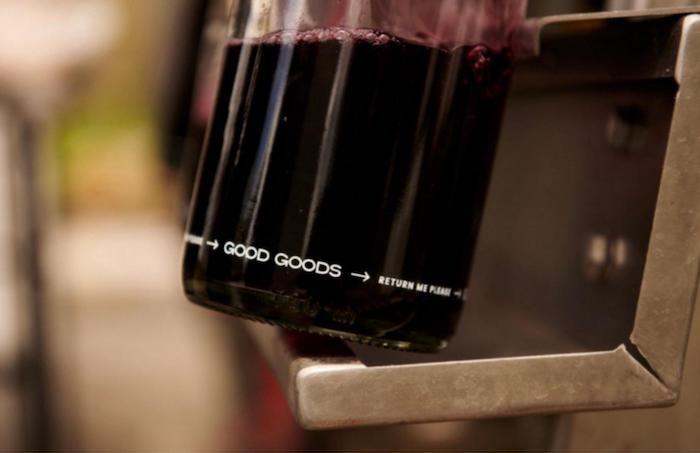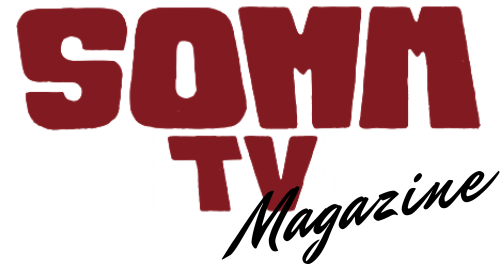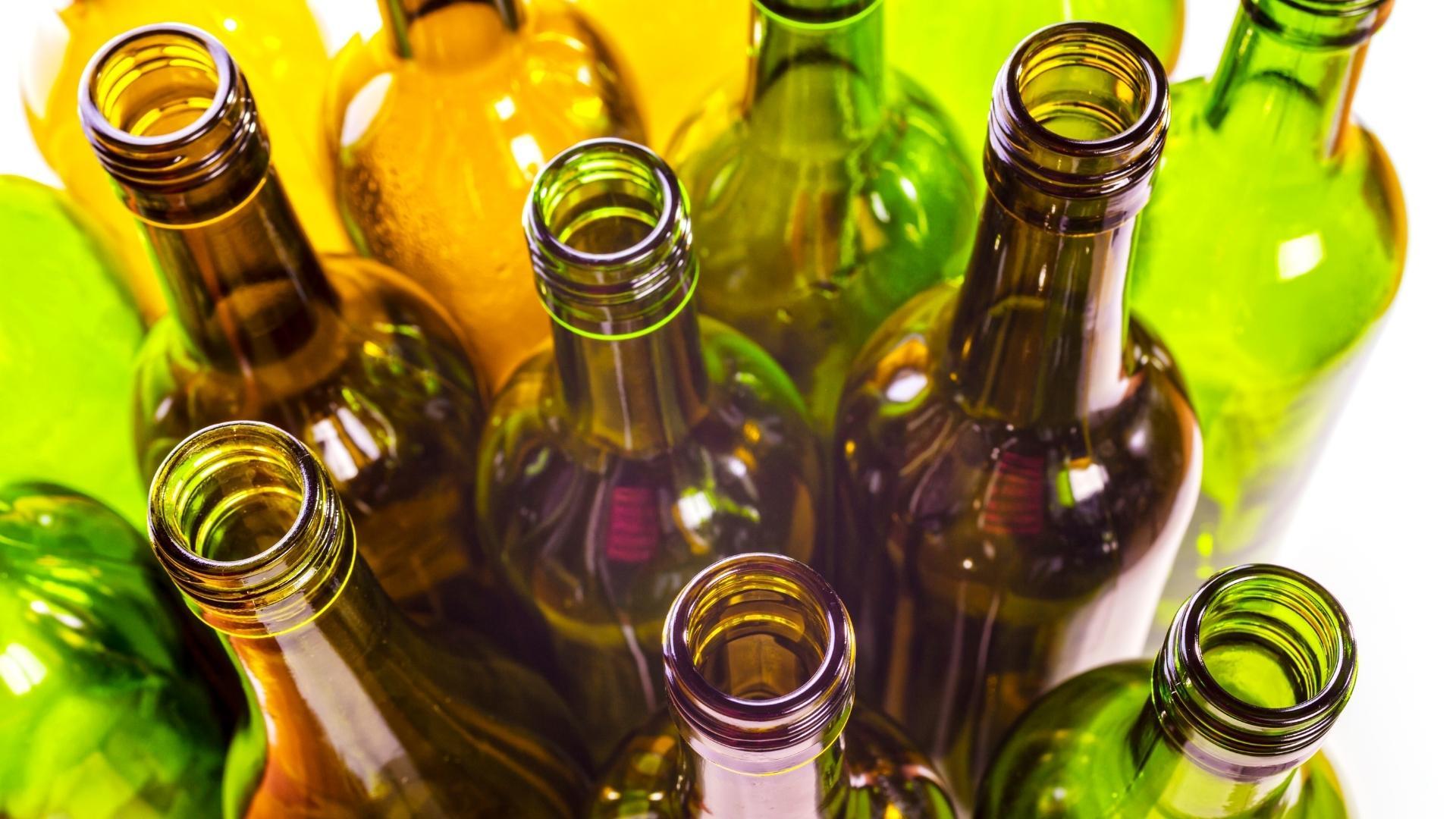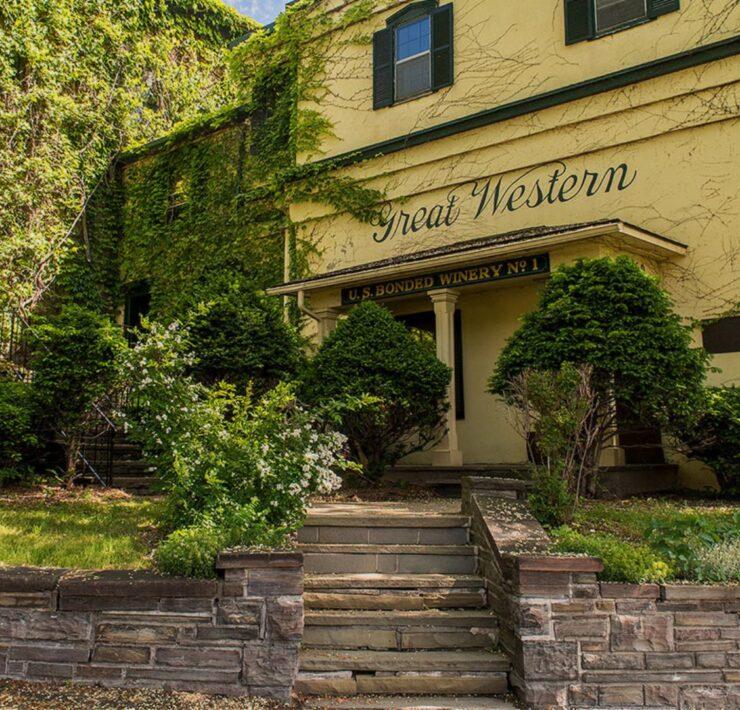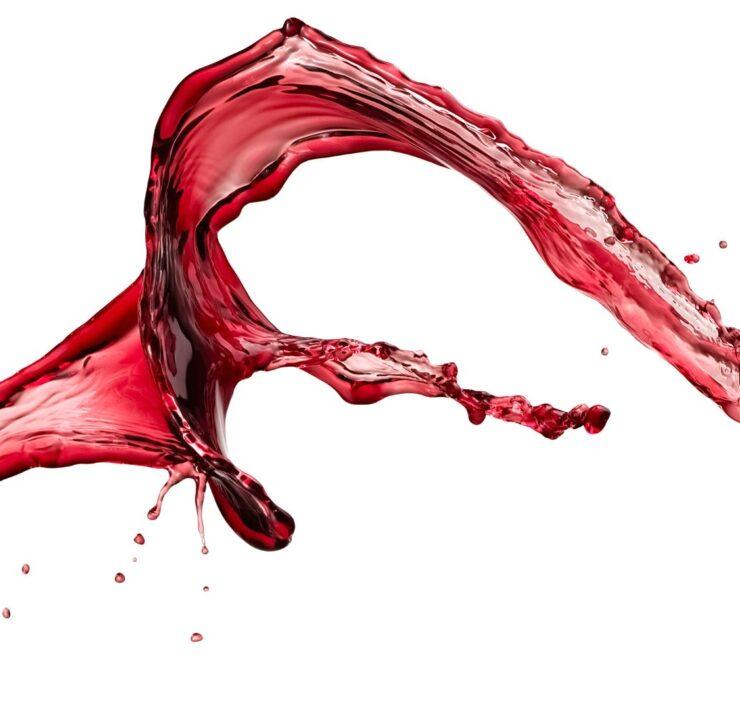The glass bottle is the most significant contributor to carbon emissions in the wine industry. The manufacture of glass is very energy-intensive. Empty glass bottles ship worldwide from the manufacturer to the winery and consumer. It was never the intention for the sturdy glass bottle to be a single-use product. Our throw-away culture has led us to a tipping point where we need to work toward a circular economy. Here are three leading examples of reusable glass bottle programs worldwide.
ReWine
Melbourne, Australia
Since 2005, this Melbourne wine merchant has been selling wine in reusable glass bottles. The founder and owner of ReWine, Marshall Waters, grew up on a farm where materials were reused rather than thrown out. “At the time in 2005, recycling in Australia was a huge problem. Glass, in particular, is so energy-intensive to manufacture and recycle, it was obvious that reusing was the best option,” says Charlie Waters, Marshall’s son.
ReWine’s first location was at Melbourne’s Preston Market. In 2007 they opened a stall at the iconic Victoria Market, followed by locations in Brunswick and Fitzroy. At first, ReWine offered its customers a unique experience of buying wine straight from the barrel. It was initially challenging to change the habits of their customers. There was a learning curve in teaching them to bring their bottles back. But, when they realized that the range of both local and international wines offered was less expensive with this system, incentivized by a discount for reusing their bottles, ReWine was able to build a solid business. They have strong brand loyalty, and word of mouth has helped their business grow.
ReWine sees about an 85% reuse of their bottles. Their clientele takes ownership, washing them and bringing them back for refilling, rather than returning them. “The pandemic made people more aware of materials and where they come from. We have found people are more enthusiastic about the refill concept. Our mantra has always been to provide reliable and consistent quality wines in a zero-waste method,” says Waters. As an addition to their locations, ReWine has recently introduced a mobile filling station in the way of a van. It can provide refills on the go at events or even at people’s homes.
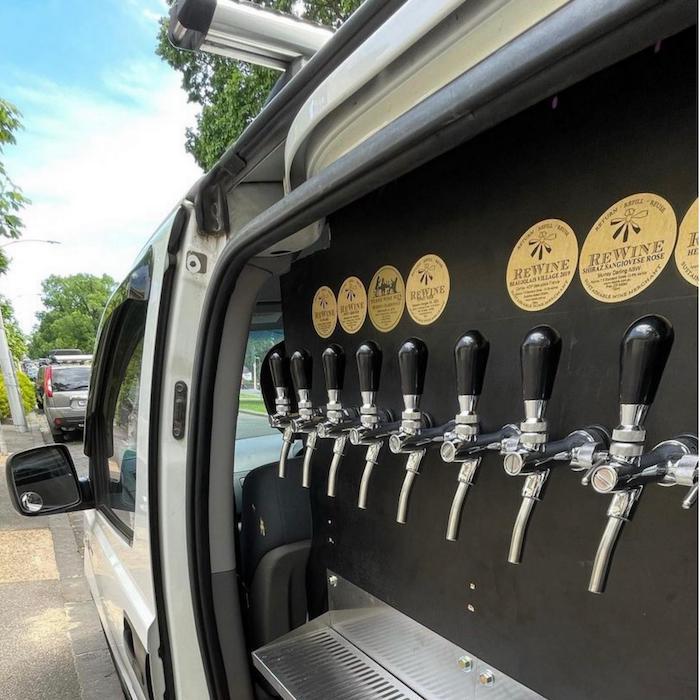
Borough Wines
London, U.K.
Muriel Chatel comes from a family of winemakers and founded Borough Wines in London in 2002. In addition to sourcing and selling wine from European producers in the retail space, there was the intention to offer quality house wine to customers in a refill system. In her search, she came to realize that the packaging accounted for most of the cost of wines in the lower price bracket. With this information, she convinced the winemakers she worked with to package their wines in a larger format bag-in-box, allowing the ability to offer top-quality house wines as a refill service.
Not content with the bag-in-box system, Chatel looked for more efficient ways to serve wine without the traditional packaging, which led to working with the on-trade and getting interested in keg systems. The use of kegs helped mitigate the issues of corked wine, spoilage and excessive packaging. When looking for kegging options for wine, only commercial-sized wineries used them. “This is when we decided to keg in-house. We wanted the benefit of the technology, the wines from the same independent winemakers we had been working with all these years, and being in full control of the process, even if that meant lots of trial and error,” says Chatel.
Borough Wines set up a facility to keg the low intervention wines shipped to them in the UK. At first, they used single-use plastic kegs but soon realized the environmental effect. They found a solution in Ecofass, a reusable plastic keg with an inside bladder that keeps the wine in perfect condition. “Innovation is in Borough Wines DNA. We strive to improve and make our industry more sustainable,” says Chatel. Only recently did the company begin using stainless steel kegs at a dedicated kegging facility they set up in London.
Sustainable Wine Solutions
London, U.K.
In 2019, Chatel of Borough Wines sought to “swing the spotlight onto our wholesale strengths and the need for more practical, sustainable solutions in our industry that fully embrace the circular economy.“ With Sustainable Wine Solutions, they incorporated a bottle return scheme for the on-trade during the pandemic. Once returned and sterilized, the bottle can be reused for many years, reducing its carbon footprint by 95%. Incorporating the bottle return scheme as part of their business model allowed them to attract many more producers.
Sustainable Wine Solutions has considered the entire supply chain to provide the hospitality industry with the most economical and eco-friendly wine solutions. “For the on-trade, the message is clear and easy to communicate. Wine is delivered in reusable formats, everything is delivered with no secondary packaging whatsoever, and everything we deliver, we collect back,” says Chatel.
Good Goods
New York, U.S.
Good Goods focuses on bottle returns rather than refills like the other two companies. They were initially working to bring a circular economy to the food sector. However, they soon realized that they could significantly impact the wine industry by focusing on glass bottles.
Melissa Saunders MW joined the Good Goods team in 2021 as wine director. Sustainability has been a focus throughout her life and wine career. “I grew up in the 70s when recycling wasn’t yet a thing, and I was the crazy kid pushing my parents to do it,” says Saunders. She wrote her Master of Wine thesis paper on the environmental effects of wine packaging and launched her first premium bag-in-box wine for her own company, Communal Brands, in 2017.
Joining the Good Goods team is a natural fit for Saunders, where she works with producers to curate environmentally-focused wines in reusable bottles. With quality wine available in a return system, the challenge turns to logistics. “Good Goods has had to shift its focus to the reverse logistics piece of the business. Currently, this is not a service being offered by a third party. A circular economy isn’t possible without supporting infrastructure,” says Saunders.
A circular business model is only achievable with consumer participation, which has been challenging. The implementation relies heavily on time and education from a collaborative wine industry. “This shift in behavior from a single-use package society to one based on reuse will take time, patience, and persistence. That said, we have the luxury of choice right now. If we continue on a single-use trajectory, it is only a matter of time before we run out of resources and are forced in the direction of reuse. Best to get ahead of it now,” says Saunders.
